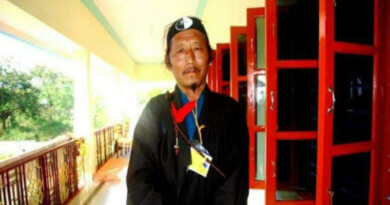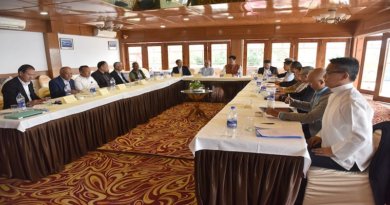With China, India should hold its ground on inviting the Dalai Lama to Arunachal
Amit Dasgupta, Hindustan Times | March 23, 2017
I have long admired His Holiness the Dalai Lama. I continue to do so.
My feelings are not unique. He has an extraordinary following across the globe. His demeanour and wisdom are inspiring. His books are sought after. His presence is uplifting. Like many, I respect him.
He also regularly advocates the need for a Tibet free of Chinese hegemony. I find it perfectly understandable, given his harrowing escape and the constant hounding of Tibetans by Beijing.
Over the years, the Chinese government and official media have branded him as ‘a splittist’, a ‘wolf in sheep clothing’ and a trouble maker.
The Dalai Lama’s growing international stature, including his Nobel prize, have been an extraordinary challenge for Beijing, which has found it difficult to handle a frail and gentle man, who speaks softly, laughs a lot and advocates love, reconciliation and brotherhood. Consequently, it has resorted to a petulant vocabulary that is official and insulting, so as to discredit and distance him.
A sense of unilateral touchiness and sensitivity has, in fact, been a hallmark of China’s foreign policy, including on Taiwan.
More importantly, it has regularly resorted to threats and harsh retribution if anybody, including governments are not mindful of its concerns. Many took this seriously and publicly shunned His Holiness, including, in fact, the Vatican. Several refused to publicly acknowledge a relationship with Taiwan.
But this did not stop others.
Very recently, Pradeep Khosla, Chancellor of the University of California, San Diego was not only ticked off by the Chinese government for inviting the Dalai Lama to address the students but also threatened with retaliation. He was called a lackey of Indian agents, who – in the words of the official Chinese media – were determined ‘to divide China’. Pradeep stood his ground. This would, most certainly, not have been easy.
It is in this context that the recent decision of the Government of India to invite His Holiness to visit Arunachal Pradesh and the historic Tawang Monastery gains importance. It might well emerge as the game changer in Indo-China relations.
Beijing has, understandably, threatened that the decision would impact bilateral relations. Given how low India-China relations are at present, it hardly matters.
How India stands up to Beijing’s threats would determine India-China relations for the future. It would also send a message to many other countries, as to whether bullying can be a viable foreign policy strategy.
A fundamental platform of China’s foreign policy has been its pathological inability to craft relationships based on mutual understanding. China has constantly used its economic and military might to resort to intimidation and arm-twisting. For a nation determined to lose friends, Beijing under Xi Jingping with his ‘forceful diplomacy’ has consistently failed to understand that it is persuasive diplomacy and not force that wins friends and influences people, especially in a global community that is confronted with significant challenges.
Now is the time for New Delhi to re-craft its terms of engagement with Beijing. Where Xi Jingping seriously miscalculated is that he took Prime Minister Modi hospitality as subservience, when it was, in fact, a hand of friendship. He needs to recall that Beijing’s behaviour in 2016 could not have won any friends in New Delhi.
It remains to be seen as to how firm India’s resolve is. Would India consider, for instance, the next President of India from Arunachal Pradesh?
Amit Dasgupta is a former diplomat.
The views expressed are personal



